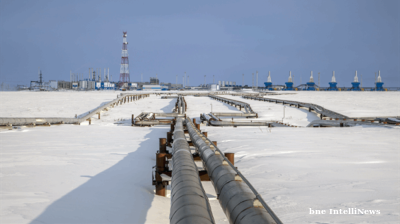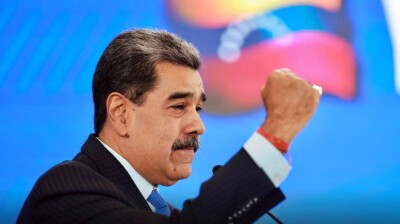COMMENT: Today world will watch as Trump meets Erdogan and does not mention his dismantling of Turkey’s democracy

The chances of Donald Trump saying anything at today’s (Thursday September 25) White House meeting with Recep Tayyip Erdogan that might get in the way of his guest’s moves to demolish what remains of Turkey’s democracy are surely nil.
And that’s despite Erdogan’s chief political rival, Istanbul mayor Ekrem Imamoglu – who has languished in a jail cell for the past six months – penning an eve-of-meeting piece for the Guardian in which he argues: “Turkey’s fight for democracy, freedom and justice is not Turkey’s alone. If a nation whose experience proves that democracy is a universal project slides deeper into autocracy, the consequences will reverberate far beyond its borders.”
The US under Trump has said precisely zilch about Erdogan’s ongoing operation to ensure Turkey’s main opposition party CHP stands no chance of removing him from power – as well as Imamoglu, more than a dozen mayors from the opposition are now imprisoned, while officials are pushing a court case that could result in Erdogan being able to install a handpicked candidate at the helm of the CHP – with the US State Department contending that it would not be right to interfere in Turkey’s internal affairs.
Erdogan, however, will have to forgive outsiders who want to poke their nose in as they ask, just how bad could things get?
Worst-case
In imagining a worst-case scenario, you might want to start with an assessment published on September 22 by Soner Cagaptay, a senior fellow and director of the Turkish Research Program at The Washington Institute.
Imamoglu, says Cagaptay, “a charismatic and relatable social democratic politician, has built a broad coalition of voters surpassing Erdogan’s” and the “suspected reason for his March arrest” is that he started to signal that he would run against Turkey’s leader of 22 years in the next presidential election.
Erdogan, aware that “the CHP in its entirety has emerged as a serious political threat” to his continuing rule “will continue seeking to suppress the party, drawing on his control of the courts, national institutions, and the media”, adds Cagaptay.
Offering three potential outcomes to the showdown, the analyst suggests a first scenario in which Erdogan could attempt to ferment a “CHP civil war”. The Turkish leader, he says, “would like to see the CHP deplete its time and energy on unending court cases and for party factions to fall prey to infighting. In this ideal scenario for Erdogan, internal strife would make the party appear chaotic—and, once again, unfit to govern—allowing the [ruling party] AKP to restore its lead in the polls.”
The second outcome envisaged by Cagaptay is titled “CHP resilience”, in which “after a period of chaos, CHP factions could again unite under the greater party banner. Considering the toxicity of party officials potentially selected by the courts [in a situation where Erdogan attempts to replace CHP’s leadership with candidates favourable to his plans], and notwithstanding a possible CHP civil war in the short term, such a scenario appears plausible in the middle to long term”.
Moving on to the third possible outcome, the worst possible scenario, Cagaptay says it would be a “near police state”. This outcome, “which could coexist with either of the first two, would be a deeper crackdown against the CHP that sparked larger and persistent mass protests,” he says.
“Amid the authoritarian response,” he contends, “Turkey would begin to resemble a police state, with long-term bans on freedom of expression, assembly, association, and media. In this scenario, Erdogan might even consider postponing elections, especially if the country’s economy does not recover before the next presidential vote.”
Considering the possibility of a full shutdown of the CHP, Cagaptay concludes that Erdogan could not do it “unless he chooses to turn Turkey into a complete police state, a development that will almost certainly ruin the country’s economy”.
"Most perilous phase"
In his article for the Guardian, Imamoglu—indicted on charges ranging from money laundering to mismanagement of contracts, based on testimony given by anonymous witnesses—writes that “democracy in Turkey has entered its most perilous phase”.
“From mayors in Adana and Antalya, to municipal staff in Istanbul, repression has reached every level. Hundreds of people languish in prison, including journalists, academics, businesspeople and students,” he adds.
Erdogan, continues Imamoglu, is “weaponising the courts against the democratic opposition” with opponents being imprisoned and replaced with loyalists.
“Unable to shut down the CHP, the government is pursuing a case that will have the effect of erasing the CHP’s rising leadership by overturning the outcome of its 2023 national party congress [on the basis of claimed irregularities],” says Istanbul’s mayor.
And he warns: “Having hollowed out the republic’s institutions to build an authoritarian regime, Erdogan now seeks to fabricate a compliant, hollow opposition. He intends to rewrite the rules so no genuine rival could survive, securing power in the style of Egypt’s Hosni Mubarak or Syria’s Assads. These are deliberate methods likely to be copied elsewhere tomorrow unless democrats everywhere stand together to resist them.”
Opinion

COMMENT: Trump is preparing a “back door” plan to blame EU for Ukraine’s failure - FT
European officials fear that US President Donald Trump’s dramatic U-turn on Ukraine is a back door plan to shift responsibility for the West’s failure to prevent Ukraine’s defeat in its war with Russia or help it recover afterwards.

COMMENT: Uncertainty and geopolitics plague Russia’s negotiations with China on gas supply deals
China is now the only potential buyer of Russian Arctic gas and the only customer with the capacity to absorb significant amounts of gas from the Yamal Peninsula, home to some of the country’s largest reserves.

COMMENT: Ukraine has no choice but to escalate its refinery attacks
Vladimir Putin's meeting with Trump in Anchorage backfired. The Russian president is now confident that military escalation will not lead to a significant increase in US military aid to Ukraine, much less intervention.

COMMENT: Behind Venezuela's phantom cartel, Trump's endgame remains unclear
The US Navy deployment near Venezuela uses a fabricated drug cartel narrative to justify potential military action. But competing agendas between regime-change hawks and America First pragmatists leave the administration without a coherent strategy.



